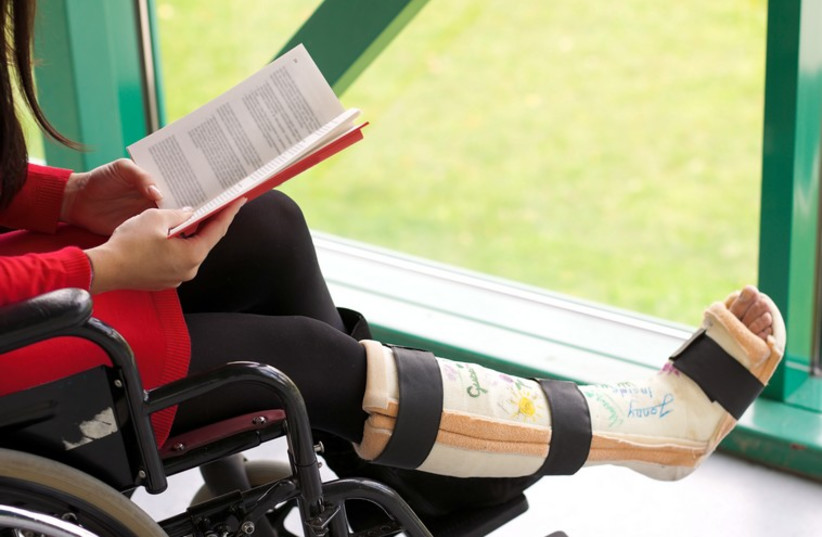In a discussion by the Knesset Labor and Welfare Committee on a solution for mobility for disabled children who have a low cognitive level, MKs and parents demanded that money be found for motorized wheelchairs for disabled children who can’t operate them by themselves. At present, the law allows them to get only a manual wheelchair, making it very difficult for family members and caregivers.
The parents shouted at the committee: “The children are under house arrest, how is it that there is not NIS 2 million to spend on motorized wheelchairs?”
A representative of the Health Ministry claimed that purchasing motorized wheelchairs for such children would cost “tens of millions of shekels.”
At the beginning of the discussion, the chairman of the committee, one of the initiators of the discussion, Shas MK Yonatan Mishriki said: “This is a very sensitive and significant issue for the parents of disabled children. We hear from them about many great difficulties, which sometimes prevent them from going out and being with other children. Therefore, we request to budget for those parents an electric wheelchair mechanism that will allow the parents to move it easily. There are several hundred children between the ages of 12 and 18 and according to the data we received, the total costs for such a move should be about NIS 2 million per year alone.”
An obligation to help
United Torah Judaism MK Eliyahu Baruchi, one of the initiators of the discussion said: “These are children whose life expectancy is not long. We are obliged to help and take care of them. When there are no suitable chairs, the child stays at home, because the difficulty of getting around is great. We want to know how we solve this problem and give the families a proper answer.”

MK Debbi Biton said: “This is a necessary step. and it is surprising that such data should be presented to a committee in the Knesset. We are in such an advanced world and we need to do everything to make it easier for these children and parents because the burden is very heavy. It doesn’t involve large amounts of money. It’s the least we can do.”
“Our role and duty is to help the disadvantaged. I hope we will find a listening ear in the government offices. We will demand this until it is carried out,” added Ra’am MK Yasser Hujirat.
Parents share the difficulties their children experience
Many parents and disabled children came to the committee meeting and described the difficulties they face. Tamar Gelfand, the mother of a 14-year-old girl with serious disabilities, said: “It’s a shame that children like this - some of whom have difficulty breathing, are unable to speak, eat by a feeding tube into their stomach – need a motorized wheelchair and don’t get one. The health budget is NIS 60 billion, so why isn’t there NIS 2 million for this? I bought my child a motorized chair and paid NIS 15,000.
Another mother in such a situation, Racheli Arieli, said she has four herniated discs and needs surgery. I have to carry 100 kg to leave the house with my son. The result is that the child goes home from the transport and then cannot get out.”
Dafna Ezarzar, CEO of the Ahva organization and mother of a 19-year-old son with a cognitive disability, said: “This is something that goes without saying and should not be limited by age. The older they get, the more they need the motorized chair.”
Dr. Yaron Sahar from the Health Ministry countered that “there is no question about the physical, emotional and mental difficulty that parents are required to face in such care, but the issue must be studied and treated within the overall framework of transitioning to motorized propulsion since the difficulty in propelling a manual chair exists whether you are a child or a parent and at any age. I see no reason to prioritize one population over another. Looking at it this way, the calculations are much bigger, when purchasing motorized wheelchairs for the entire population of children aged 12 to 18 will cost over NIS 80 million initially and another NIS 20 million annually.”
Mishriki retorted that “There are many things that require correction, but right now we are dealing with a very specific and clear population. We have heard the parents and the dire plight they face. I intend to contact the health minister and ask him to find a solution for the age group we mentioned here. It is not possible for children to be forced to lock themselves in their homes. We will hold another discussion as soon as possible to hear the ministry's answers.”
